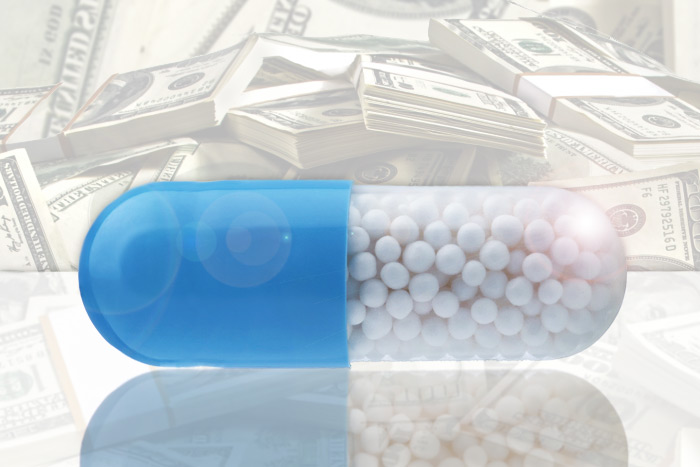Drug Killers: Pharmaceutical Price Gouging Must End

I am a great believer in the American way of life. America is a land of opportunity. Work hard and you can become wealthy. Sit around and do nothing and you will live in poverty. It’s your choice. It beats communism where everybody makes the same. And it surely beats a dictatorship where just one guy makes everything and everybody else gets the crumbs.
On the other hand, there are ways of getting wealthy that are totally out of line. Stealing is one. Running a scam is another. For those taking such shortcuts we have laws, regulators and jail sentences.
In recent months, a few industrious people have tried to increase their fortunes by buying the rights of old but effective medications that have been selling inexpensively, and jacking up the cost by nearly 100 times the existing price.
Turns out there are no regulations preventing someone from doing this. You don’t even have to know anything about the pharmaceutical business. All you have to do is assemble a large amount of money from investment bankers, create what appears to be an international pharmaceutical company, but is just one that buys underpriced rights and jacks up the price for the sick.
You might suggest that all a patient has to do is buy a different drug that does the same thing. But that’s the key. These profiteers are only interested in drugs that have no known competitors. The patient needs that drug. It could be a drug–if it fits the model–he must have to live. He will pay anything for it. And if he can’t, he will find friends or family to help him. And if that is not possible, he will die.
Here are just a few examples of drugs that have had sudden dramatic price increases. Daraprim (bought by Turing Pharmaceuticals), used to treat toxoplasmosis, a rare infection in babies and AIDS patients, went up 5,000%, from $13.50 to $750 a tablet. Cycloserine (Rodelis Therapeutics), used for a rare form of tuberculosis, went from $500 for 30 capsules to $10,800 for 30 capsules. The antibiotic doxycycline (Valeant Pharmaceuticals), a common Lyme disease medication, went from $20 a bottle to $1,849 a bottle. Others are Isuprel, Nitropress, Cuprimine, Glumetza, Syprine and Mephyton (Valeant Pharmaceuticals). Not surprisingly, the price of the stock of Turing, Rodelis and Valeant went through the roof.
Congress has opened an investigation about these pricing changes. Recently, Martin Shkreli, the head of Turing, appeared before them. So did billionaire J. Michael Pearson of Valeant, who The New York Times reports saying he has a duty to shareholders to wring the maximum profit out of each drug.
As a result of the publicity, some of these price increases have been rescinded. And with them, their stock prices have gone back down.
Already there are articles in the media about these men who should be arrested and charged with endangering the lives of the sick.
But read how it’s handled in the business sections of newspapers and websites. It has nothing to do with sick people. It’s all about the money. Here’s how the New York Post handled it in “STUCK IN THE MUD. Activists get hurt when trouble hits” on October 16.
“Case in point is [William A.] Ackman’s 5.7 percent stake in Canadian pharmaceutical giant Valeant, which announced late Wednesday that it is under investigation by federal prosecutors in New York and Massachusetts regarding its pricing of drugs.”
The poor man may have lost nearly $600 million in the last month or so as the price of the stock dropped.
We don’t need any investigations. Most other countries regulate the price of drugs directly or indirectly. We don’t. We need a bill passed. The Republicans, most of whom are of an age at which they have to take pills, won’t object. Democrats won’t object. The pharmaceutical companies that don’t gouge won’t object. And the public won’t object. Everyone says Congress can’t pass anything. Here’s one situation that everyone can share in solving.



